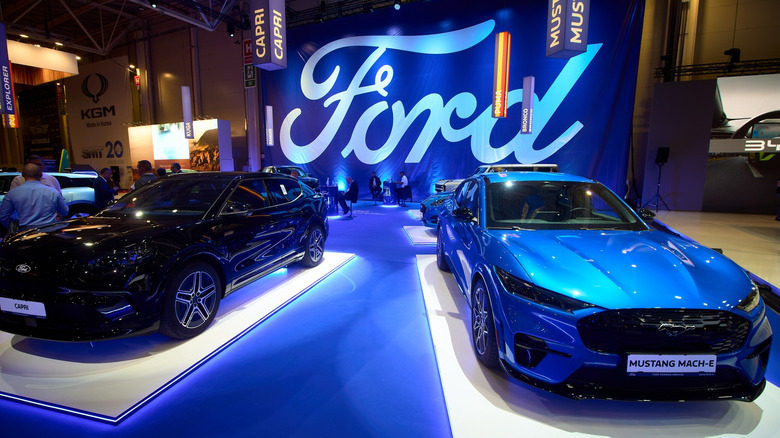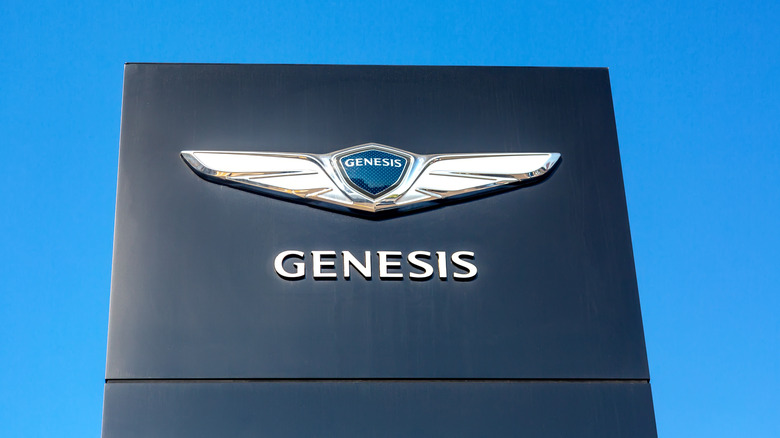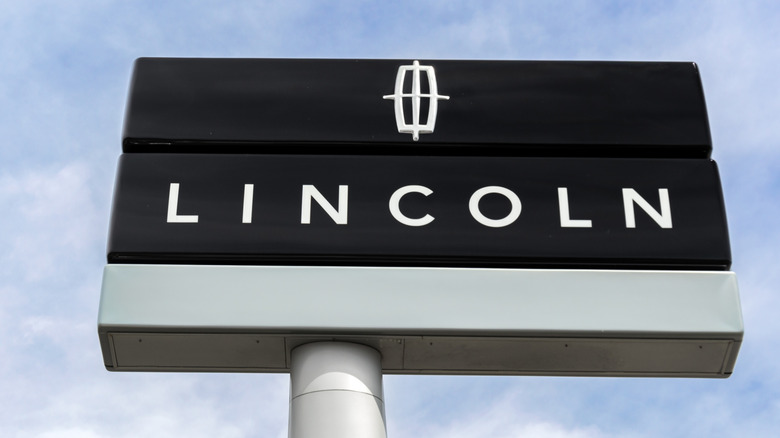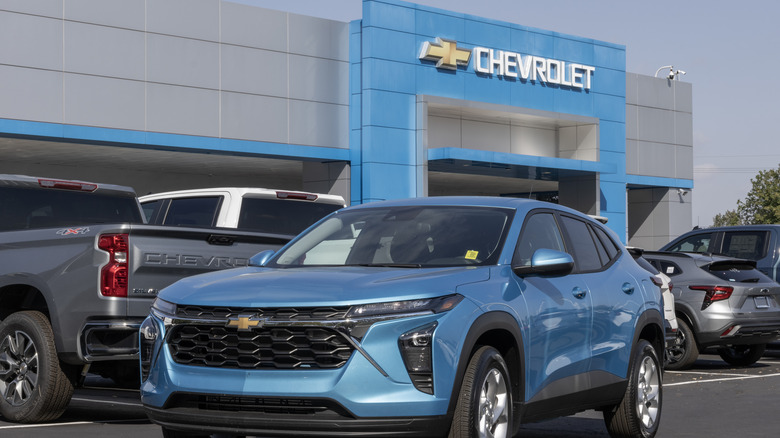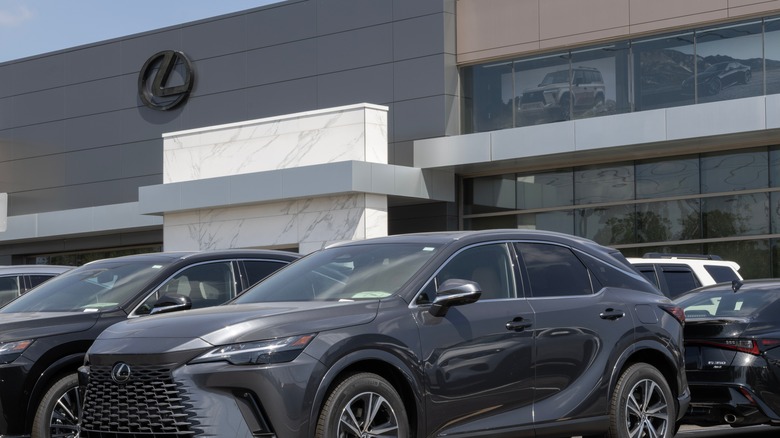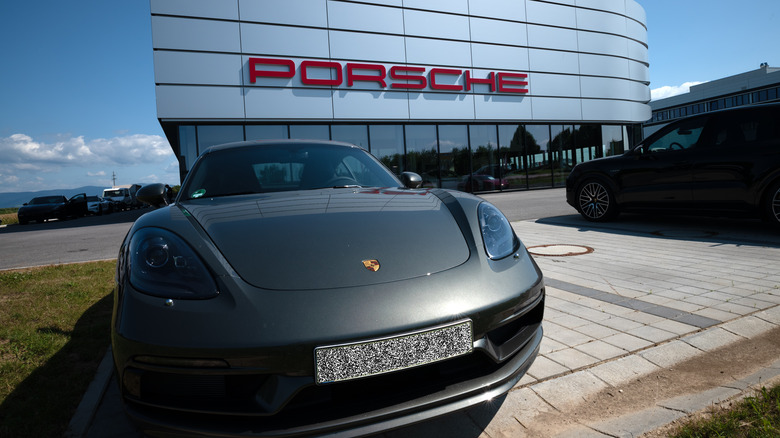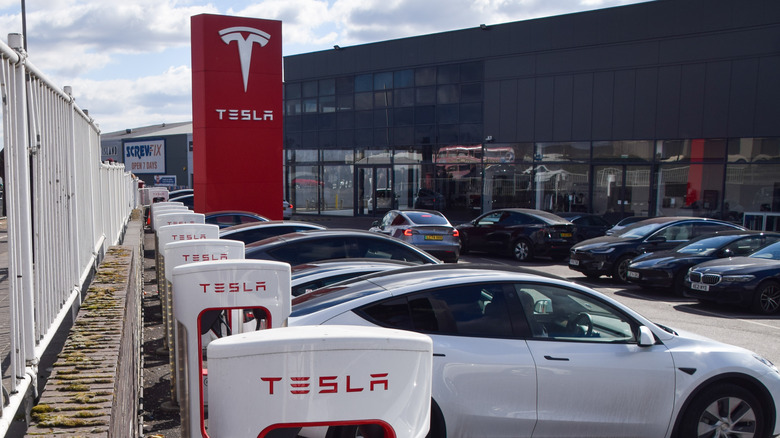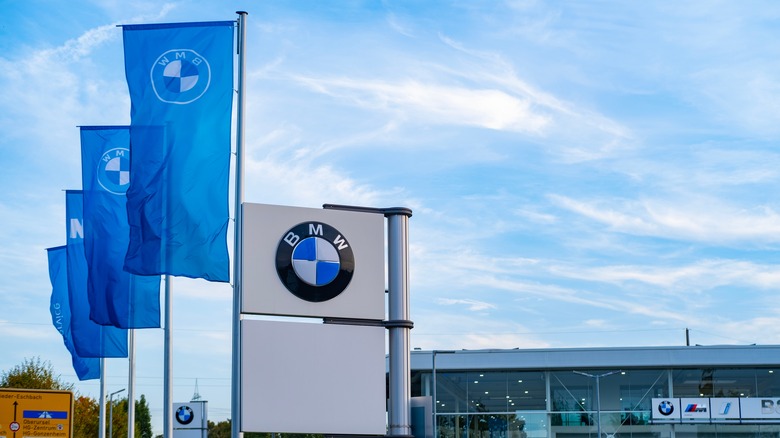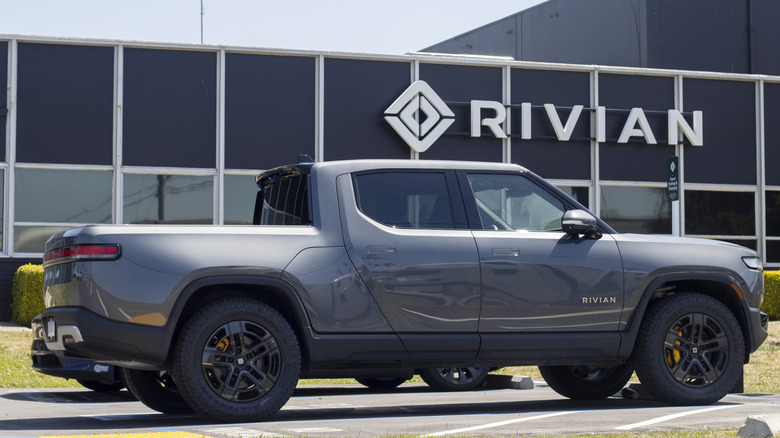Customers' Top 10 Favorite Car Brands, According To Consumer Reports
Americans love their cars. According to a recent survey from Autotrader, nearly one-third of Millennials describe their relationship with their vehicle as a "love affair." About half of all respondents said their car feels like it is part of their identity, and nearly 30% of Millennials have given their vehicle a name, almost double that of Baby Boomers.
Another poll covered by the New York Post found that nearly 9 in 10 respondents (88%) remember their first car, and 60% wish they had taken better care of it. This nostalgia is especially high among Baby Boomers (91%) and Gen Xers (89%). Owning a car is more than just getting from point A to point B. It's about how the car feels, how easy it is to drive, and whether it fits your lifestyle.
Drivers are often very loyal to car brands, with some sticking with the same car model or brand for decades. Every year, Consumer Reports (CR) surveys hundreds of thousands of drivers to find out which brands people would buy again. The 2024 owner satisfaction rankings are based on responses from over 300,000 vehicle owners, asking one simple question: Would you buy the same car again? The satisfaction score indicates the percentage of drivers who responded "definitely yes" when considering overall comfort, driving enjoyment, cabin storage, usability, and ownership cost. Here are the top ten most loved car brands.
10. Ford – 67% Would Buy Again
Ford is 10th in the survey with 67% of owners saying they'd buy again. Ford is one of America's oldest and most iconic car brands. The Ford F-Series has been the best-selling truck in the U.S. for 48 consecutive years, with more than 33 million sold since 1977. The brand is known for its trucks and SUVs and currently sells one passenger car, the iconic Mustang. In 2024, Ford sold 1.97 million vehicles in the U.S. according to Car Pro (excluding the Lincoln brand), ranking second only to Toyota, which sold 1.99 million vehicles. About 98,000 were electric vehicles (EVs), 2nd behind Tesla.
Among car brands in 2025, Consumer Reports ranks Ford 19th overall out of 31 brands and 11th in mainstream brands. CR recommends the Mustang Mach-E EV and the Maverick, Ford's small pickup truck that has a hybrid version available. However, most of Ford's vehicles scored low in CR's road tests and had average to below-average reliability. Ford has recently launched The Lightning, an EV version of the F-150.
According to the 2025 J.D. Power U.S. Initial Quality Study (IQS), Ford ranks 14th out of 31 in car brand ranking with 193 problems per 100 vehicles (PP100). The industry average is 192 PP100. Still, Ford's blend of tradition and innovation keeps it competitive, a favorite for drivers who want a familiar name with a strong reputation in trucks and SUVs.
9. Genesis – 68% Would Buy Again
Genesis is a newer luxury brand, but it's already making waves. The brand began as the Hyundai Genesis luxury sedan, first released in 2008. The South Korean brand separated from Hyundai in 2015 to become a standalone luxury division. The luxury brand offers stylish sedans, SUVs, and electric cars that compete with BMW and Audi, but at lower prices. The G70, for example, is a sporty sedan that won MotorTrend's Car of the Year in 2019. In 2024, Genesis sold 75,003 vehicles in the U.S. This placed the brand 28th in total auto sales and 11th in luxury car sales for the year. About 6,200 of the vehicles sold were EVs, according to KBB.
Among car brands in 2025, Consumer Reports ranks Genesis 13th overall and 8th in luxury brands. Genesis cars have performed well in CR's tests. They're smooth to drive, look and feel high-quality inside, and come with numerous safety features. However, newer models haven't fared as well as their older ones, and results are mixed when it comes to reliability.
The 2025 J.D. Power IQS ranks Genesis 10th out of 31 in car brand ranking with 183 problems per 100 vehicles (PP100). Genesis offers one of the best warranties in the industry, with a 5-year/60,000-mile basic warranty and a 10-year/100,000-mile powertrain warranty. While the brand is still building its reputation, Genesis is quickly gaining ground.
8. Subaru – 68% Would Buy Again
Subaru has a loyal following, especially among outdoor lovers. The brand is known for making rugged vehicles equipped with numerous safety features. They were one of the first brands to adopt features like turbocharging and all-wheel drive (AWD), which is now standard on all of its new models. In 2024, Subaru sold 667,725 vehicles in the U.S. according to Best Selling Cars.
Compared to all car brands in 2025, Consumer Reports ranks Subaru 1st overall and 1st in mainstream brands, consistently ranking near the top in Owner Satisfaction and reliability ratings. Subarus use a unique "boxer" engine where pistons move horizontally, which reduces vibration and gives the car a low center of gravity for better stability. Subarus, however, are not known for their luxury features.
According to the 2025 J.D. Power IQS, Subaru ranks 12th out of 31 in car brand ranking with 187 problems per 100 vehicles (PP100). According to Edmunds, all of its SUVs are more than capable off-road, and it's one of the few brands that still offers a hatchback and sport coupe.
7. Lincoln – 70% Would Buy Again
Lincoln is Ford's luxury car brand, offering quieter, more luxurious, and more stylish models. For example, the big Lincoln Navigator is based on the Ford Expedition, and the smaller Lincoln Corsair is based on the Ford Escape. Lincoln also offers hybrid versions of its models. Lincoln SUVs typically come standard with features such as leather seats, large screens, and premium materials that help make the cabin exceptionally quiet. In 2024, Lincoln sold 104,823 vehicles in the U.S. This placed the brand 26th in total auto sales and 9th in luxury car sales for the year.
Compared to all car brands in 2025, Consumer Reports ranks Lincoln 24th overall and 12th in luxury brands. Although ranked low, CR recommends certain Lincoln models due to their combination of interior quality and powerful engines. Lincoln's scores are average when it comes to new and used car reliability, road-test scores, and owner satisfaction ratings.
According to the 2025 J.D. Power IQS, Lincoln ranks 20th out of 31 in car brand ranking with 206 problems per 100 vehicles (PP100). Lincoln was long known for the spacious Town Car. They recently discontinued it, however, in favor of smaller sedans and crossover SUVs to attract younger buyers.
6. Chevrolet – 70% Would Buy Again
Chevrolet is one of America's most well-known car brands and is one of the main brands under General Motors. It ties with Lexus in owner satisfaction. The brand offers a wide range of vehicles, from the Silverado pickup to the Bolt EV and is moving towards more all-electric models. This variety helps Chevy appeal to many types of drivers. The Silverado is Chevy's top-selling model and is second to Ford's F-150 in best-selling pickup trucks.
Compared to all car brands in 2025, Consumer Reports ranks Chevy 25th overall and 13th in mainstream brands. Many of its models rank average or below average in CR's rankings. Used Chevrolets often have reliability issues, but they are generally less expensive to maintain and repair than their competitors. According to the 2025 J.D. Power IQS, Chevrolet ranks fifth out of 31 in the car brand ranking, with 178 problems per 100 vehicles (PP100).
Chevy is known for building cars that have made a big historical impact like the Corvette and Camaro, and produced category-defining vehicles like the Suburban. Chevrolet is a smart choice for drivers who want practical vehicles for large families, hauling cargo, or towing a trailer.
5. Lexus – 70% Would Buy Again
Lexus is Toyota's luxury brand, formed in the late 1980s to compete with German luxury cars. Lexus has built a strong reputation on comfort, quality, and reliability. Many Lexus cars and SUVs, including the popular NX, RX, and TX SUVs, also offer hybrid models. Lexus is one of the few brands that still sells sedans (ES, IS, and LS) alongside sporty coupes and convertibles. Its first all-electric car is the RZ. In 2024, Lexus sold 345,669 vehicles in the U.S.according to Car Sales Statistics.
Compared to all car brands in 2025, Consumer Reports ranks Lexus 3rd overall and 2nd in luxury brands. According to CR, it is one of the few luxury companies that successfully combines high-tech design with consistent reliability. Their interiors are quiet and finely made, and their engines are smooth and powerful. Because of their dependability, CR recommends multiple Lexus models for used car reliability.
According to the 2025 J.D. Power IQS, Lexus ranks 1st out of 31 in car brand ranking with 166 problems per 100 vehicles (PP100). Lexus is popular due to the brand's reliability and durability, while offering a comfortable and luxurious experience.
4. Porsche – 71% Would Buy Again
Porsche is a German luxury brand known for building high-performance sports cars. Since the early 2000s, the specialty carmaker has expanded past its iconic sports cars and now makes popular SUVs like the Cayenne and sedans like the Panamera. Porsche also offers the all-electric Taycan and many hybrid versions of its models. In 2024, Porsche sold 76,167 vehicles in the U.S.
Compared to all car brands in 2025, Consumer Reports ranks Porsche 4th overall and 3rd in luxury brands. According to CR, every Porsche tested received excellent scores for driving and owner satisfaction, thanks to its sharp handling, smooth ride, great brakes, and beautifully crafted interiors. Although it can be expensive to maintain and repair a Porsche, the brand is considered highly reliable.
According to the 2025 J.D. Power IQS, Porsche ranks 13th out of 31 in car brand ranking with 188 problems per 100 vehicles (PP100). Porsche's rich history and prestige make the cars very appealing. Even now, the name Porsche makes people think of the famous 911 sports car. Porsches are often seen as a status symbol and a great vehicle for drivers who want a superior driving experience without sacrificing comfort.
3. Tesla – 72% Would Buy Again
Tesla continues to be one of the most talked-about car brands, and for good reason. In 2024, the Tesla Model Y was the best-selling vehicle in the world with 1.09 million sold. In 2024, KBB reported that Tesla sold 633,762 EVs in the U.S., placing the brand first in total EV sales. For 2025, Tesla continues to dominate with a market share of 48.5%, more than the next four brands combined, according to Visual Capitalist. Drivers love the instant acceleration, sleek design, and cutting-edge tech. The Model 3 and Model Y are its top sellers and are often called "premium" or "near-luxury" vehicles, offering electric power at a more affordable price than luxury rivals like BMW and Mercedes.
As of November 2025, Tesla market cap was $1.48 trillion, which is more than the next 35 biggest automakers combined. Compared to all car brands in 2025, Consumer Reports ranks Tesla 18th overall and 10th in mainstream brands. However, it ranks first in terms of lowest maintenance and repair costs. According to CR, Tesla's EVs are difficult for older car companies to beat because they balance driving distance, speed, and cost. However, Tesla's controls tend to rely heavily on the touchscreen, which can be confusing. CR rates Tesla's reliability and build quality as average or below average compared to other EVs at the same price.
According to the 2025 J.D. Power IQS, Tesla had 200 problems per 100 vehicles (PP100). Even with CR's mixed reviews, Tesla remains an incredibly popular brand due to the overall experience, especially its Supercharger network and tech features.
2. BMW – 73% Would Buy Again
BMW is one of the top luxury car brands in the world. The German automaker has touted itself as "The Ultimate Driving Machine," and owners seem to agree with almost 3 out of 4 drivers saying they'd buy again. BMW makes sedans and SUVs with a reputation for having top-notch comfort and technology, while also being quick, easy to handle, and fuel-efficient. In 2024, BMW sold 371,346 vehicles in the U.S.
Compared to all car brands in 2025, Consumer Reports ranks BMW 2nd overall and 1st in the luxury brand category. However, like most luxury cars from Europe, BMWs can be expensive to maintain and repair, ranking 23rd out of 32 in that category. According to CR, BMW's SUVs, like the X5, are ranked near the top compared to other luxury brands. BMW is also quickly adding EVs to its lineup, and CR has rated them high as well.
According to the 2025 J.D. Power IQS, BMW ranks 15th out of 31 in car brand ranking with 196 problems per 100 vehicles (PP100). A standard new BMW warranty is 4 years or 50,000 miles, with a separate complimentary maintenance package for 3 years or 36,000 miles. The BMW brand remains strong thanks to its high performance, design, and brand prestige, along with the fact that is somewhat more attainable than other high-end brands.
1. Rivian – 86% Would Buy Again
Rivian, the newest car brand on this list, specializes in pure electric pickup trucks and SUVs. The brand is hugely popular, ranking number one on Consumer Reports' owner satisfaction list for the second year in a row. Founded in 2009, the brand made its public debut in 2018 and currently offers two consumer models, the R1S SUV and the R1T pickup truck, as well as commercial Electric Delivery Vans (EDVs), built primarily for Amazon. Rivian has announced two new, smaller, and more affordable SUV models scheduled to launch in the coming years. In 2024, the company sold 51,579 EVs in the U.S., ranked 6th in EV sales volume.
Despite its market success, Rivian ranks at the bottom of most reliability tests. Compared to all car brands in 2025, Consumer Reports ranks Rivian 31st out of 31 brands and 15th in luxury brands. This low-quality trend is supported by the 2025 J.D. Power IQS, where Rivian would have ranked at the bottom due to 274 problems per 100 vehicles. CR's tests found Rivian's EVs to be comfortable, very fast, and great for driving off-road, with competitive driving range and ample storage.
Rivian's biggest downsides are the touchscreen-only controls (even for simple things like air vents) and a regenerative braking system that can make the ride feel choppy instead of smooth. Despite concerns about quality and reliability, owners are overwhelmingly satisfied with the overall driving experience, performance, and utility of their Rivian vehicles.

